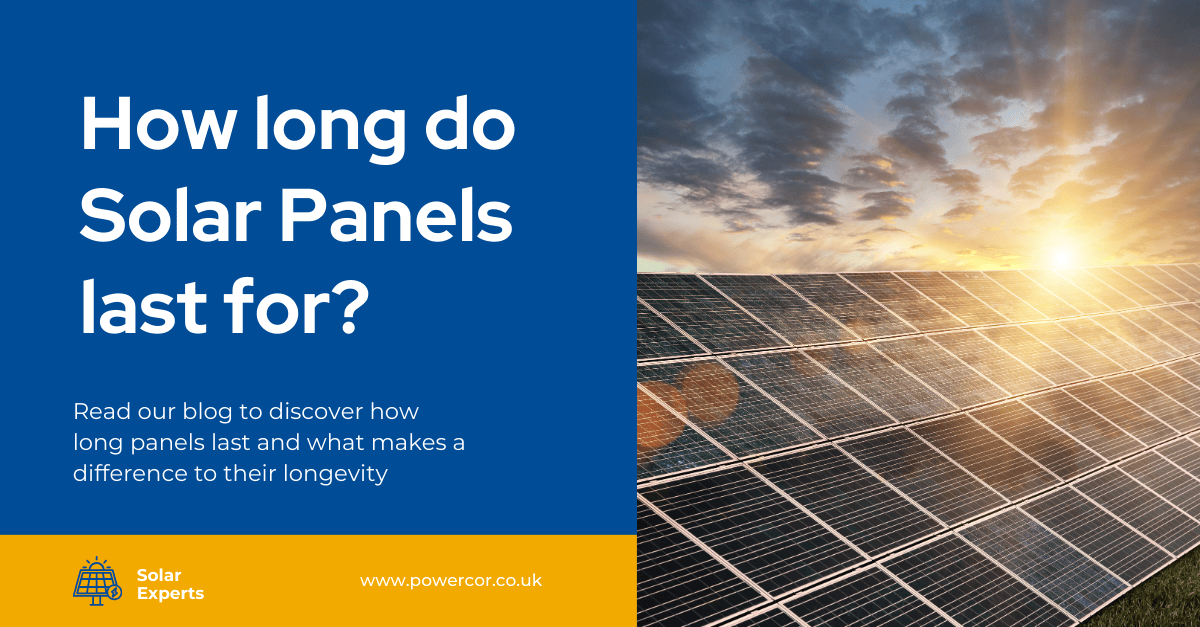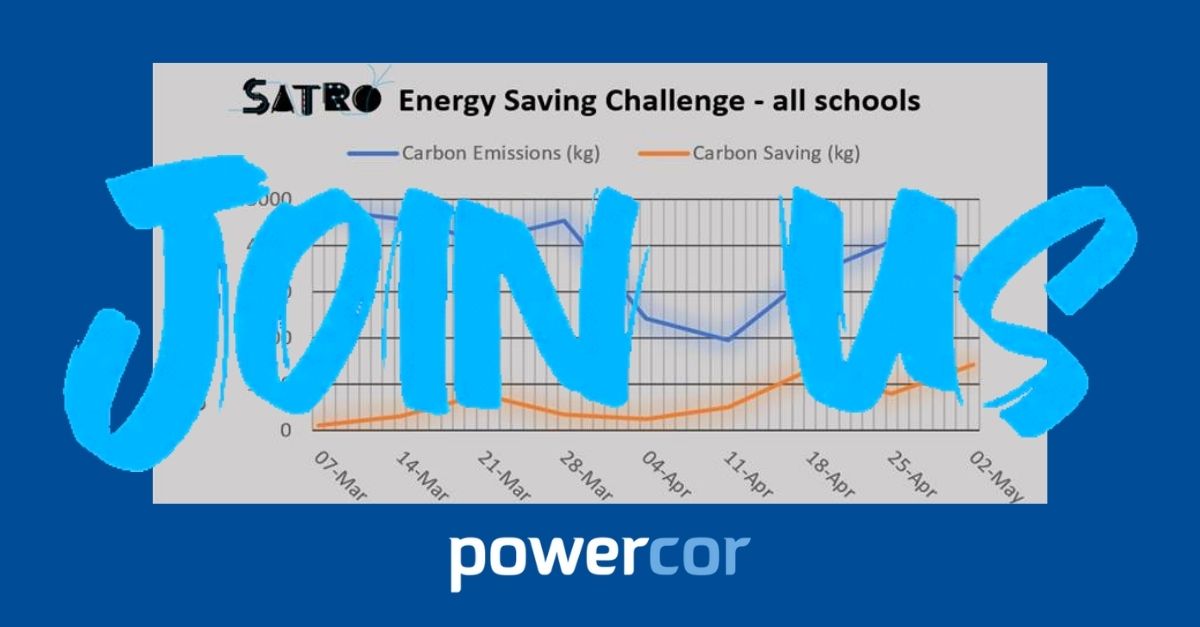When considering a shift to renewable energy, one of the first questions that comes up is: how long do solar panels last for? This is a fair concern, especially when evaluating the return on investment, maintenance expectations and environmental benefits over time. The longevity of solar panels directly affects their value. They are designed to last far longer than many assume, which is especially when your panels come from a manufacturer like SolarEdge – one of Powercor’s key strategic partners.
Average lifespan of solar panels
Most modern solar panels are built to last between 25 and 30 years, but that doesn’t mean they stop working after this point. Rather, their efficiency begins to decline gradually. By the end of this typical lifespan, solar panels will still produce electricity, just at a reduced capacity — often around 80% of their original output.
The rate at which panels lose efficiency is the degradation rate. For most panels on the UK market, this rate sits at less than 1% per year. So, after 20 years a panel would still be producing approximately 80%-90% of its initial output.
What affects how long solar panels last for?
Several factors influence solar panel longevity:
- Quality of manufacturing: Tier 1 manufacturers like SolarEdge use high-grade materials and advanced quality control processes, making their panels more durable.
- Installation: Poor installation is one of the most common causes of early failure. Panels must be mounted securely and aligned correctly to avoid stress and water ingress.
- Climate and location: While solar panels are designed to withstand varied weather, extreme conditions such as heavy hail, high winds, or salty coastal air can accelerate wear.
- Maintenance and cleaning: Panels should be maintained annually, including cleaning and an inspection. This can go a long way in extending their life.
Addressing these issues will improve the longevity of your solar panels.
Panel degradation and warranties
Manufacturers often back up their panels with performance warranties that guarantee output levels for a set period. This aligns with the general consensus on how long solar panels last for in practical terms.
In addition to performance warranties, there are also product warranties, which cover physical defects or failure.
Can solar panels last longer than 30 years?
Absolutely. Some systems installed in the 1980s are still operational today. While their output may be lower, the fact they’re still functional highlights the underlying durability of photovoltaic (PV) technology.
In fact, with proper care and ideal conditions, it’s not unusual for panels to keep generating electricity for 35–40 years. However, the economic rationale for keeping older, less efficient panels in service should be weighed against potential gains from newer, higher-efficiency models.
How long do solar panels last for when used in commercial settings?
For commercial installations — such as warehouses, schools or offices — the question of how long do solar panels last for is tied to energy strategy and infrastructure planning.
Panels are often part of integrated energy systems, and longevity is just one piece of the puzzle. Businesses benefit from panels with robust warranties and low degradation rates, especially when paired with battery storage and real-time monitoring systems.
In commercial environments, maintenance schedules should be more rigorous, which can help panels reach or exceed their full expected lifespan. For facilities operating on tight margins or sustainability targets, this reliability is crucial.
End-of-life options and recycling
Solar panels are not just built to last; they’re also increasingly designed with end-of-life in mind. When panels do reach the end of their functional lives, they can often be recycled or repurposed.
The glass, aluminium frames, and even some silicon materials can be recovered and reused. The UK is investing in solar panel recycling infrastructure, ensuring that the shift to green energy remains sustainable across the entire lifecycle.
Signs it might be time to replace your panels
While the expected answer to how long do solar panels last for is 25 to 30 years, certain signs can indicate it’s time for an upgrade sooner:
- Noticeable drop in output beyond expected degradation
- Visible damage or discolouration on panels
- Persistent inverter issues (though inverters typically need replacing every 10–15 years)
- Outdated technology compared to current efficiency standards
Understanding the question “How long do solar panels last for?” helps homeowners and businesses make informed decisions about clean energy investments. With proper installation, minimal maintenance and the right components, solar panels offer a long-lasting and increasingly cost-effective energy solution.
They’re not just a short-term fix; they’re a long-term asset — both financially and environmentally.







